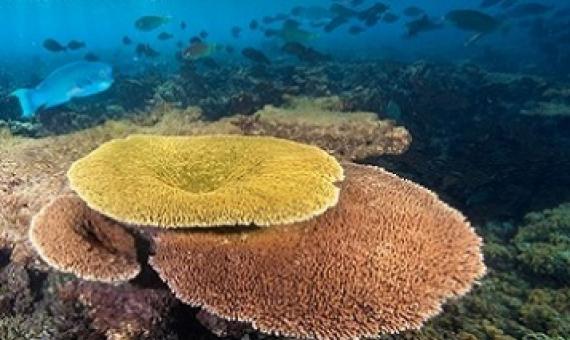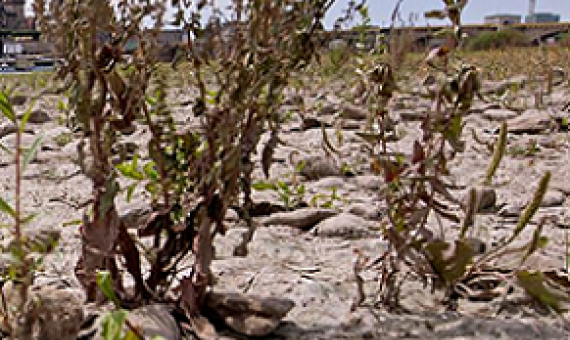Ocean warming threatens to wipe out corals, but scientists are trying to protect naturally resilient reefs and are nursing some others back to health...When these scientists hear that 70–90% of reefs could be gone by mid-century, they focus on the 30% that might live.
This year is increasingly likely to be the planet's second- or third-warmest calendar year on record since modern temperature data collection began in 1880, according to data released this week by the National Oceanic and Atmospheric Administration.
Researchers say that teasing out the role of human-induced global warming — as opposed to natural fluctuations — in individual weather extremes will help city planners, engineers and home-owners to understand which kinds of floods, droughts and other weather calamities are increasing in risk.
Using 22 climate models, Scott Power and François Delage at the Australian Bureau of Meteorology in Melbourne analysed the rate at which monthly temperatures are likely to reach unprecedented levels over the course of the twenty-first century.
Oceans, which hold about 97 percent of our planet’s water, continue to undergo warming, pollution and species loss—ominous developments that explain the considerable amount of donor attention they receive. Click on the link below to read the full article.
Conservationists say these high levels of protection are necessary to safeguard benefits that humans derive from nature—such as the filtration of drinking water and storage of carbon that would otherwise increase global warming.
Ben van Beurden says ‘another Brazil in terms of rainforest’ will help achieve UN target. Click on the link below to read the full article.
Oceans mean the whole world. They provide us food. They offer shelter to many species that enable life to exist on earth. They protect us from the impacts of climate change. Unfortunately, we are exploiting them, pushing ocean ecosystems to their limits.
The survival of the Great Barrier Reef hinges on urgent moves to cut global warming because nothing else will protect coral from the coming cycle of mass bleaching events, new research has found.
Please visit the link below to read the full article.
A new global plan aims to save the meagre 10 per cent of the world's coral reefs predicted to survive beyond 2050. Please visit the link below for the full story.













